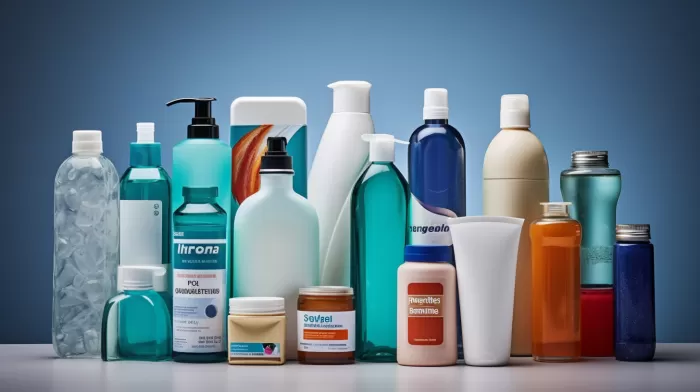You may be unwittingly exposing yourself to a dangerous toxin every time you brush your teeth or wash your hands. Shockingly, this chemical has been linked to serious health problems including cancer and allergies. It’s no wonder that many health experts are advising the public to check their product labels and avoid this substance at all costs. Don’t wait for the FDA to take action on this – safeguard your health by learning what the worrisome chemical is and how to sidestep it altogether.
Triclosan: A Troublesome Toxin
This hazardous substance is called triclosan, and it’s an antibacterial chemical that is commonly added to a wide range of consumer products such as soaps, toothpastes, deodorants, detergents, cutting boards, carpets, and even some toys. Recent research indicates that triclosan may be connected to health issues like breast cancer in women and allergies in children.
In light of these alarming findings, Minnesota has become the first state to ban triclosan in 2017. Though the FDA is in the process of considering such action, it might take several years before any decision is made.
The Environmental Protection Agency (EPA) maintains that triclosan isn’t usually a problem for most people. However, if your body is unable to metabolize triclosan properly, it can accumulate in your blood. Laboratory tests have revealed that this antimicrobial substance can also trigger complications in the heart, muscles, and hormones of affected individuals.
According to various studies, triclosan can currently be found in the urine of over 211 million Americans. Clearly, triclosan exposure is a widespread problem in need of immediate attention.
The Damaging Effects of Triclosan
There are several ways that triclosan can adversely affect your health. Some of these devastating impacts include:
Hormonal Disruptions
Research has shown that triclosan can interfere with hormonal functions in animals. It has been found to disrupt their endocrine systems, leading to thyroid imbalances as well as developmental and reproductive issues. Although more research is needed to confirm these effects on humans, it is a concern that should not be taken lightly.
Antibiotic Resistance
The overuse of triclosan has raised concerns about the development of antibiotic resistance. This chemical is so prevalent in our environment that bacteria are constantly exposed to it, increasing the chances that they will adapt and become resistant. This resistance can potentially lead to the proliferation of untreatable “superbugs,” which would pose a major threat to public health.
Environmental Contamination
Triclosan isn’t merely a threat to our health – it’s also a danger to the environment. This chemical can persist in the environment for a long time and has been found in water, soil, and even aquatic life. Triclosan’s accumulation in the environment can disrupt ecosystems, potentially impacting plant and wildlife populations.
How to Avoid Triclosan
Given the serious health concerns surrounding triclosan, it’s crucial for you to take steps to minimize your exposure to this toxic chemical. To do so, follow these guidelines:
Read Product Labels
Pay close attention to the labels on personal care products such as soaps, toothpastes, and deodorants. Look for triclosan in the ingredients list and steer clear of any products that contain this hazardous substance. You can also seek out products that are labeled “triclosan-free” or opt for natural alternatives.
Choose Alcohol-based Hand Sanitizers
Instead of using antimicrobial hand soaps containing triclosan, opt for alcohol-based hand sanitizers. These sanitizers have been shown to be effective against bacteria and generally don’t contribute to antibiotic resistance.
Keep an Eye on Household Items
Triclosan is frequently added to various household items to prevent bacterial growth. Be extra careful when purchasing cutting boards, toys, and carpets – make sure to double-check labels and choose items that don’t contain triclosan.
Stay Informed
Stay updated on the latest research and news about triclosan, and make sure to share this crucial information with friends and family. Public awareness is the key to creating a safer, healthier environment for everyone.
The dangers of triclosan have become a pressing issue that warrants concern. By familiarizing yourself with the potential health risks associated with this toxic substance and taking steps to avoid it, you can safeguard your well-being and the well-being of your loved ones. Don’t wait for regulatory action – the time to act is now.



